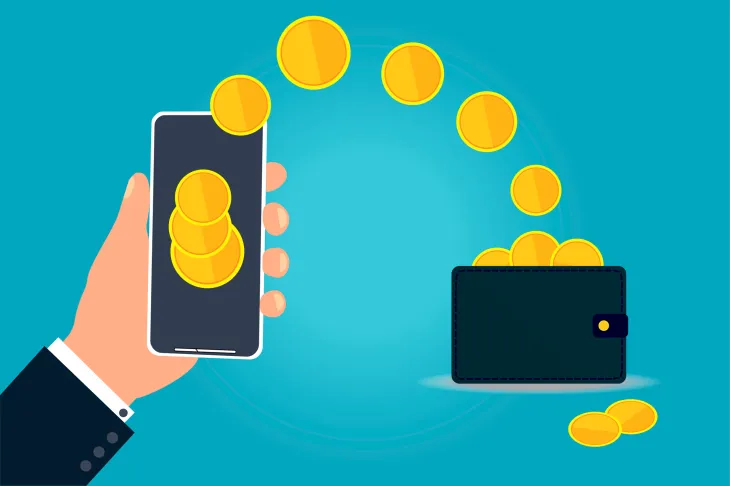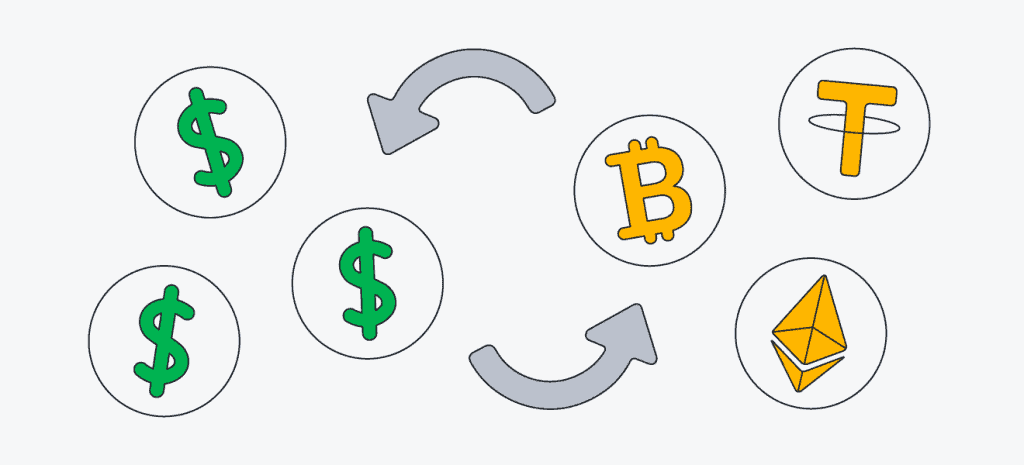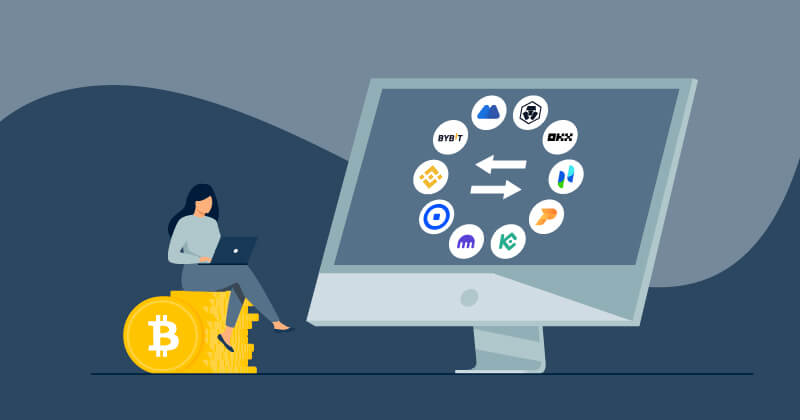Boldly stepping into the world of digital currency? Mastering how to invest in cryptocurrency could be your ticket to unlock future wealth. We begin by decoding the jargon and laying a rock-solid groundwork. From blockchain foundations to setting up your first trade, my hands-on guide takes you by the hand, leading you through each careful step of the journey. This is no time for hesitations. Dive right in, and learn how to mix the right blend of digital assets. Get ready to grasp the strategies that will transform cryptic graphs into clear signs of where to invest next. With me, you’ll not only master the markets but do so with unshakeable security and adherence to the law. Let’s turn your crypto curiosity into substantial savvy – and your investments into the building blocks of tomorrow’s fortune.
Understanding the Essentials of Cryptocurrency Investment
Grasping Cryptocurrency Investment Basics
Ready to get started with investing in digital currencies? Here’s what you need to know.
First, learn how crypto works. It’s not like cash in your bank. It’s a digital coin. You can use it to buy things or keep it, hoping it goes up in value. Bitcoin and Ethereum are top names you might know. But there’s more to it than just names. You need to get the basics down.
Think of cryptocurrency like a ticket to a game. Each ticket, or coin, is a chance to win if the team does well. But it’s not just luck. You can play smarter by learning the rules of the game.
Now, let’s talk about risks. Investing means you might make money or lose it. Cryptocurrencies can be more up and down than a roller coaster. So, be sure you’re ready for that. Risk comes with the chance to make money, but always think about how much you can afford to lose.
Long-term vs short-term, what’s it mean? Well, long-term is like planting a tree and watching it grow. Short-term is more like a quick run in the park. Both can be good, but which one fits you?
To keep those digital coins safe, you use a crypto wallet. It’s like a pocket for your coins. But not the kind you sew on your jeans. It’s digital, and you have to pick a good one.
So, how about buying some coins? You need a place to do that, and it’s called a cryptocurrency exchange. It’s like a digital store for coin trading. But watch out, they charge fees. You don’t like hidden fees in your phone bill, right? The same goes here.
Setting Up a Strong Foundation in Blockchain Technology
Now let’s talk about blockchain. It’s the tech behind crypto. It’s like a giant book that everyone can read but no one can erase. Every coin’s journey is in that book. That’s how you know it’s real and safe.
Understanding blockchain is key. The better you get it, the smarter you can be with your money. It’s like knowing the rules of the road before driving a car.
And there’s more than just Bitcoin or Ethereum. There are altcoins, like different flavors of ice cream. Some might become as popular, or even more so.
ICO, or Initial Coin Offering, is how new coins are born. It’s like a baby shower for cryptocurrencies. You can join the party, but remember, not all babies grow up to be stars.
DeFi, or decentralized finance, is a new way to look at money. No banks, no middlemen, just you and the tech. It can be a way to make more from your coins. But it’s new, and new can mean risks.
Staking in cryptocurrency is like betting on your favorite player. You support them, and if they do well, you do too. But if they don’t, you may not clap as loud.
In short, you have to know the game to play well. Get the basics, pick your coins, and learn the field.
Preparing to Dive into the Cryptocurrency Markets
Selecting a Cryptocurrency Exchange and Setting Up a Crypto Wallet
Before you start, pick where you’ll buy and store your coins. A cryptocurrency exchange is like a stock market for crypto. Choose one that’s easy to use, secure, and offers many coins. Names like Coinbase or Binance might ring a bell. They’re big players in the game.
Now, you need a crypto wallet. Think of it as your digital bank. It holds all your coins. Some exchanges offer wallets, but getting a separate one is wise. Why? Because it’s safer. You want to keep your digital cash under your control.
Setting up a wallet is simple. Pick a wallet, download it, and follow the steps. Protect your wallet. Use strong passwords and watch out for scams. Remember, in crypto, there’s no bank to call if things go south.
The Fundamentals of Crypto Investing and Diversification Strategies
Crypto investing can be wild. Prices may skyrocket or nosedive fast. That’s where diversifying helps. Spread your money over different coins. Don’t put all eggs in one basket. This way, if one coin fails, you’re not out of the game.
Start with the big names like Bitcoin and Ethereum. Get comfy with these before exploring others. There are thousands of coins, but not all are good bets.
Understanding blockchain is key. It’s the tech behind all cryptocurrencies. Blockchains store info in blocks and link them together. Like pages in a ledger. This tech makes coins like Bitcoin secure and hard to mess with.
Think about how long you want to invest. Some folks buy and hold, waiting for values to rise. Others trade often, trying to catch price swings. Know your style.
Keep track of news and trends. They can move crypto prices a lot. Use tools to watch the market. Look into “staking,” where you can earn extra coins just by holding them.
Remember, investing in crypto isn’t a game. It’s risky. Learn as much as you can. Take security seriously. Use strong passwords. Keep your software up to date. Beware of scams. Never invest more than you can afford to lose.
Lastly, let’s talk ICOs and DeFi. ICOs are when new coins are born. It can be exciting but risky. Research well before jumping in. DeFi means “decentralized finance.” It’s like bank stuff but on blockchain. DeFi can be complex, so dig deep into it before putting money down.
Now, don’t forget taxes. Crypto gains can be taxed. Keep records of your buys and sells. This makes tax time less stressful.
In short, start slow, learn the ropes, and don’t rush. Use resources to stay safe. You’re on your way to becoming a savvy crypto investor. Welcome to the future of money!
Advanced Investment Techniques and Market Analysis
Mastering Technical and Fundamental Analysis for Informed Decisions
Investing in digital currencies is like a puzzle. You need the right pieces to see the whole picture. One key piece is technical analysis. It’s like a map for price movements. By looking at past prices, you find patterns. These patterns help guess where prices might go next. Use charts and tools that plot these movements. They show you if it’s time to buy or sell.
Now, let’s chat about fundamental analysis. It’s digging deep into what a cryptocurrency is about. It asks big questions. What problem does it solve? Who’s behind it? How many people use it? These answers help you see if the crypto has lasting worth.
Think of it like shopping for fruit. You check if it’s ripe and smells fresh. The same goes with crypto. You want one that has strong roots and room to grow.
Identifying Profitable Opportunities: ICOs, DeFi, and Altcoins
Staking in cryptocurrency is another cool way to grow your cash. It means you lock up some coins to help run a blockchain network. In return, you get more coins. Think of it as planting a seed and getting a plant later on.
New coins start with something called an ICO—which stands for initial coin offering. It’s like when a singer sells the first tickets to a show. If you buy early, they might be cheaper and more valuable later.
DeFi means “decentralized finance.” It uses crypto to do things banks do – like earn interest or get loans, but without the middleman. It lets you be your own bank.
Now, don’t forget altcoins! These are any coins that aren’t Bitcoin. Some are super cheap and have a shot at growing big. Others might not work out. So, choosing takes thought and care.
Do you like exploring new things? ICOs and DeFi might just be your jam. Or, if you believe slow and steady wins the race, staking or altcoins could be your ticket.
Remember, no road is without bumps. So, learning to read the signs is key. You’ll hear lots of news about crypto. Some good, some bad. It’s smart to see how news affects prices. A big change can make the market jump or fall.
One last pro tip: keep away from scams. If a deal sounds too good, it’s time to step back and think. Always double-check where you’re putting your money.
We just took a hefty trek through some cool ways to make your money work in crypto. There’s more to learn, so stay hungry for knowledge! Keep asking questions and never stop exploring. Your crypto journey is yours to shape!
Maintaining Security and Compliance in Your Investment Journey
Implementing Security Measures and Understanding Regulatory Requirements
Investing in digital currencies is exciting but risky. You must guard your money. Like a bank has a vault, your crypto needs a safe place too. This is where setting up a crypto wallet comes in. A wallet keeps your digital cash secure. Many wallets need keys, just like your house. Lose them, and you’re locked out forever. So keep them safe!
Before starting, know the law. Laws change from place to place. Some laws are strict, others not. Learning rules helps you stay out of trouble. KYC, short for Know Your Customer, is one rule most exchanges want. It means they check who you are.
Tax Implications and Calculating Returns for Crypto Investments
When your crypto makes money, you may owe tax. Like any cash you earn, the IRS wants to know. How much tax depends on how long you held the crypto. A short time, and your tax might be high. A long time, and it’s less. Keep track of what you buy and sell. This helps you figure out your gains or losses.
Remember, crypto is tricky. Prices can go up or down fast. You must watch closely and decide when to hold or sell. Calculating your returns tells you if you’re winning. Use tools and software to help track your money. These can give you a heads-up on what’s next.
Invest smart, secure your wallet, and keep up with taxes. That’s how you protect your digital wealth.
In this post, we covered the keys to crypto investing, from basics to advanced strategies. First, we dug into the essential knowledge needed to get started. We looked at how blockchain works and why it’s critical for your crypto journey. Next, we tackled how to get into the market. We picked out the best crypto exchange and set up a safe wallet. We also talked about spreading your bets to cut risk.
Then, we moved onto expert tips, like reading market signs and using charts for smart choices. We learned about fresh chances in ICOs, DeFi, and lesser-known coins. Last, we stressed keeping your investments safe and playing by the rules. We explored how to protect your crypto and what the law says about your money.
My last piece of advice? Keep learning and stay safe. Crypto moves fast, and a smart investor is always ahead of the game. Stick with what you learned here and keep your investments secure. You can do this!
Q&A :
What do I need to know before investing in cryptocurrency?
Understanding the cryptocurrency market can be complex for beginners. It’s important to know the basics, such as what cryptocurrency is, how blockchain technology works, the various types of digital currencies available, their market dynamics, and the risks involved. Educating yourself on the mechanics of buying, selling, and storing your cryptocurrency securely is crucial as well. Being aware of the market’s volatility and doing thorough research to make informed decisions is key to investing in cryptocurrency wisely.
How can I start investing in cryptocurrency safely?
To start investing in cryptocurrency safely, you should choose a reputable exchange or platform to buy your crypto. There’s a need to ensure your chosen platform adheres to regulatory standards and provides robust security measures. Once your account is set up, use a secure wallet to store your coins; consider a hardware wallet for added security. Moreover, invest only what you can afford to lose, diversify your investments, and stay vigilant against fraud by keeping abreast of common cryptocurrency scams.
What are the best cryptocurrencies to invest in as a beginner?
As a beginner, it’s generally recommended to begin with more established cryptocurrencies like Bitcoin (BTC) and Ethereum (ETH), as they have proven track records and more liquidity compared to smaller, newer altcoins. However, it’s important to conduct your own research on various coins, their use cases, and potential for growth while taking your investment goals into account. Keep in mind that cryptocurrency markets are highly volatile, and past performance is not indicative of future results.
Are there any strategies to follow when investing in cryptocurrency?
Investing in cryptocurrency requires a strategic approach to manage risks and optimize potential gains. Dollar-cost averaging (DCA) is a common strategy where you invest a fixed amount of money at regular intervals, regardless of whether the cryptocurrency’s price is high or low. This can help reduce the impact of volatility. Other strategies include diversification across different crypto assets, staying informed on market trends, setting clear objectives, and deciding on an exit strategy to know when to take profits or cut losses.
How can cryptocurrency investments be taxed?
Cryptocurrency investments are taxable, and tax treatment varies by jurisdiction. In many countries, cryptocurrencies are treated as property, and you must report capital gains or losses from your crypto transactions on your tax returns. The rules for taxation can change and may depend on how long you’ve held the asset, whether you’ve made a profit, and the amount. It’s a good idea to keep detailed records of all your crypto transactions and seek advice from a tax professional who’s versed in cryptocurrency to ensure you’re complying with the tax laws governing your crypto investments.




